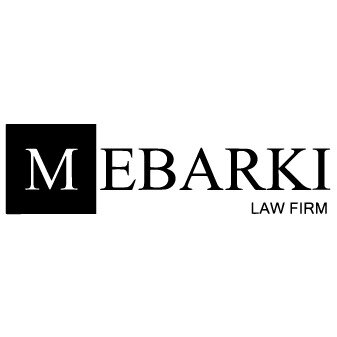Best Investment Lawyers in Algeria
Share your needs with us, get contacted by law firms.
Free. Takes 2 min.
Or refine your search by selecting a city:
List of the best lawyers in Algeria
About Investment Law in Algeria
Investment in Algeria is regulated by specific laws and regulations aimed at promoting economic growth and attracting foreign investment. The Algerian government has made efforts to improve the investment climate in the country by offering incentives and creating a transparent framework for investments.
Why You May Need a Lawyer
Legal assistance may be necessary in situations such as drafting investment agreements, resolving disputes with business partners, understanding local regulations, obtaining permits and licenses, and navigating the legal system in case of any conflicts related to investment.
Local Laws Overview
Key aspects of local laws in Algeria relevant to investment include the Investment Law, which provides incentives for investors, the Commercial Code regulating commercial activities, and the tax laws governing the taxation of investments. It is important to understand these laws and comply with them to operate legally in Algeria.
Frequently Asked Questions
1. What are the incentives available for foreign investors in Algeria?
Foreign investors in Algeria can benefit from tax breaks, repatriation of profits, and access to free trade zones.
2. How can I register a company in Algeria as a foreign investor?
Foreign investors can register a company in Algeria by following the procedures outlined in the Commercial Code and obtaining the necessary permits and licenses.
3. What are the restrictions on foreign ownership in Algeria?
Foreign ownership is restricted in certain sectors such as media, defense, and agriculture, where Algerian ownership is required.
4. How can I resolve a dispute related to my investment in Algeria?
Disputes can be resolved through negotiation, mediation, or arbitration in accordance with the Algerian legal system.
5. Are there any specific labor laws that I need to be aware of as an investor in Algeria?
Investors must comply with Algerian labor laws, which regulate employment contracts, working hours, wages, and social security contributions.
6. Is it possible to repatriate profits from my investment in Algeria?
Yes, investors can repatriate profits from their investments in Algeria subject to compliance with currency exchange regulations.
7. What are the environmental regulations that apply to investments in Algeria?
Investors must comply with environmental regulations related to pollution control, waste management, and resource conservation.
8. Can I benefit from any government-funded programs for my investment in Algeria?
Yes, the Algerian government offers incentives and programs to support investments in priority sectors such as agriculture, manufacturing, and renewable energy.
9. How can I protect my intellectual property rights in Algeria?
Intellectual property rights can be protected through registration with the Algerian National Institute of Industrial Property (INAPI) and by drafting proper contracts with partners and employees.
10. Are there any restrictions on the transfer of shares in Algerian companies?
Share transfers in Algerian companies are subject to restrictions outlined in the Commercial Code, which may require approval from authorities or business partners.
Additional Resources
For more information and assistance on investment in Algeria, you can contact the Algerian Investment Development Agency (ANDI) and the Ministry of Commerce. Legal advice can also be sought from law firms specializing in investment law.
Next Steps
If you require legal assistance with your investment in Algeria, it is recommended to consult with a qualified lawyer who can provide guidance and representation in navigating the legal aspects of investments in the country.
Lawzana helps you find the best lawyers and law firms in Algeria through a curated and pre-screened list of qualified legal professionals. Our platform offers rankings and detailed profiles of attorneys and law firms, allowing you to compare based on practice areas, including Investment, experience, and client feedback.
Each profile includes a description of the firm's areas of practice, client reviews, team members and partners, year of establishment, spoken languages, office locations, contact information, social media presence, and any published articles or resources. Most firms on our platform speak English and are experienced in both local and international legal matters.
Get a quote from top-rated law firms in Algeria — quickly, securely, and without unnecessary hassle.
Disclaimer:
The information provided on this page is for general informational purposes only and does not constitute legal advice. While we strive to ensure the accuracy and relevance of the content, legal information may change over time, and interpretations of the law can vary. You should always consult with a qualified legal professional for advice specific to your situation.
We disclaim all liability for actions taken or not taken based on the content of this page. If you believe any information is incorrect or outdated, please contact us, and we will review and update it where appropriate.
Browse investment law firms by city in Algeria
Refine your search by selecting a city.












